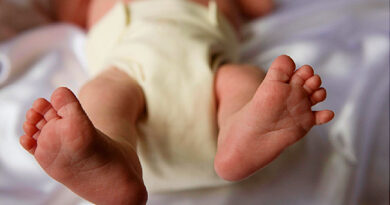What Heart Bypass Surgery Is Really Like
By Ralph Lee, as told to Barbara Brody
I’ve always thought of myself as an athlete. I played basketball at Xavier University in the 1980s and was inducted into the school’s hall of fame. So when I found myself struggling to walk up a hill 2 years ago, I knew something was off. My wife and I had just left a Cleveland Browns game, and we were heading back to our car. She walked with ease, floating a few paces in front of me; I felt like I was moving backward.
By the time we got to our car, my entire upper body was drenched in sweat and I had a dull, almost numb sensation in my left arm. But the discomfort passed, so we went home. It wasn’t until the next day, when I called my doctor and he told me to go to the emergency room, that I realized just how serious the situation was.
An EKG revealed that I’d had a heart attack, and it wasn’t my first. The day before the Browns game, I had participated in a fundraising walk for the American Heart Association. The event involved a gentle 2-mile walk in mild weather, yet by the time it was over I was sweating so much that I had to sit in my car for 20 minutes blasting the air conditioner before I felt well enough to drive away.
In the hospital, I learned I had three blocked arteries. Blood flow to my heart was seriously compromised and another, perhaps deadly, heart attack, could be imminent if we didn’t act. A few days later, I was in the operating room having a triple bypass.
A Lifesaving — and Life-Changing — Experience
I was initially shocked when my doctor told me I needed bypass surgery. I don’t smoke, I don’t drink, and I’m a former athlete. But it dawned on me that a lot had changed since I was a college basketball star.
Not only was I now in my 50s, but I had gained a lot of weight, my exercise routine was spotty, and I wasn’t consistently taking my medication to manage type 2 diabetes, which I had been diagnosed with about 10 years prior.
I resigned myself to what was about to happen; I just wanted the surgery over.
Because I was under general anesthesia, I don’t remember anything about the procedure. But I know that my surgeon removed three healthy blood vessels from my left leg and used them to create new pathways that enabled blood to flow around the three blocked arteries.
Bypass surgery is open heart surgery: The surgical team had to cut down the center of my chest to reach my heart. When I woke up, it felt like a truck had run over my chest. I was in agony, but I was alive. I was also determined to do whatever it took to get out of the hospital as soon as possible.
Recovery was a harrowing experience because I had to relearn how to do the most basic things.
First, a nurse helped me take a few steps so I could try to use the bathroom, and I was encouraged to sit in a chair instead of staying in bed all day. Then I moved on to walking in the hallway with a nurse, then walking on my own. By the third day they put me on steps; I had to slowly walk up and down three or four times a day.
One of my most vivid memories of that time is clutching the red, heart-shaped pillow I was given after surgery. Because my chest had been split open, I felt like I was about to die when I had to cough or sneeze. The pillow is pretty firm, and pressing it to my body provided pressure that kind of helped keep everything in place and ease the ache. I just held onto that pillow like it was my best friend, like it might save my life. Even after I came home from the hospital, I spent weeks attached to that pillow. Everyone who came to visit signed it.
Moving Forward
About a month after the surgery, I was cleared to start outpatient rehab. Three times a week I participated with a group of other heart patients in supervised exercise and lifestyle counseling.
Being in my 50s, I was the youngest patient there, but it was actually pretty fun. Being stuck at home had felt isolating, even though my wife took great care of me. I really like being around people — I’m a human resources manager — so I welcomed the chance to drive to rehab, meet people, and get back into a routine. I felt like I was making new friends and getting back into the world.
Since my ordeal, I’ve regained some strength and had time to evaluate how my lifestyle choices got me into this situation in the first place. In hindsight, it was all my fault. I never thought anything like this would happen to me, but I wasn’t taking care of myself, and I didn’t listen to the people who had tried to encourage me to change course.
It’s been 2 years since my bypass surgery, and since then I’ve stopped eating red meat. I take all my medications as prescribed. And I see my cardiologist for a checkup every 6 months. I’ve also tried to get back into exercise, but I’m not fully there yet. There’s more I could be doing.
Perhaps most importantly, I now listen to my body. I had struggled during the Heart Walk and again after the Browns game, yet I ultimately went home instead of getting help. Now, if I feel something is wrong, I go straight to the hospital.


